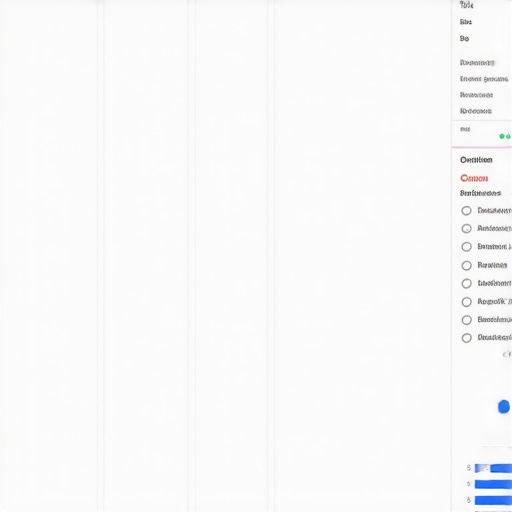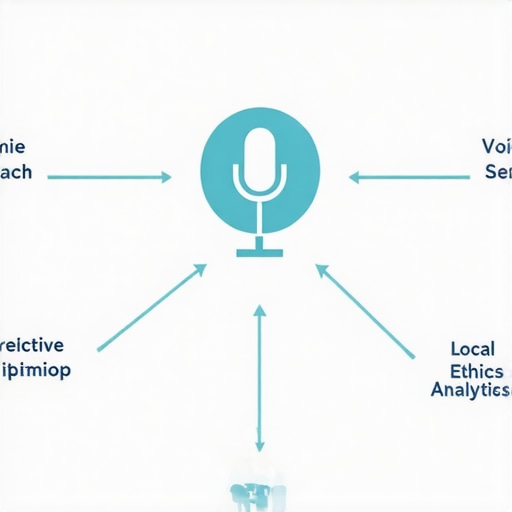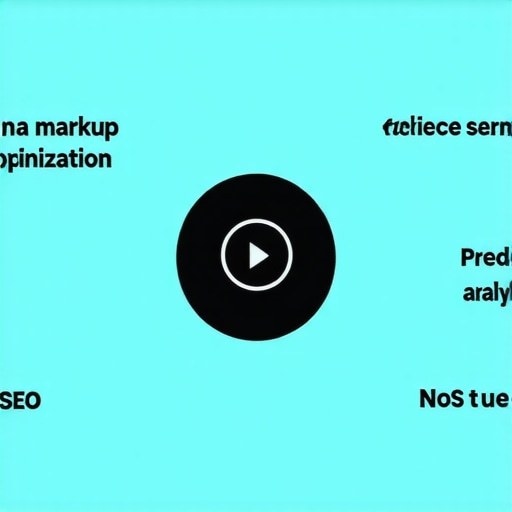Unlocking the Power of Google 3 Pack: An Expert’s Perspective on Local SEO Dominance
In the competitive landscape of local search, securing a spot in the coveted Google 3 Pack can significantly amplify your business visibility and drive qualified traffic. As seasoned SEO professionals understand, the nuances of Google’s local ranking algorithm demand a strategic, multi-layered approach. This article delves into sophisticated tactics and insights, grounded in industry expertise, to elevate your Google Business Listing and outmaneuver competitors in the local map pack.
Deciphering the Algorithmic Layers: An Expert’s Framework for Local Pack Optimization
What are the core ranking signals that influence the Google 3 Pack placement?
At the heart of local SEO lies a complex interplay of signals such as relevance, distance, and prominence. Relevance pertains to how well your listing matches the search query, while distance considers proximity to the user. Prominence reflects the overall authority and reputation of your business, gauged through citations, reviews, and backlinks. A nuanced understanding of these signals enables professionals to tailor their strategies effectively, emphasizing authoritative citations and rich, keyword-optimized business profiles.
Harnessing Local Citations and NAP Consistency for Authority Building
One of the most impactful yet underutilized strategies involves meticulous management of citations and NAP (Name, Address, Phone Number) consistency across platforms. High-quality citations from reputable directories instantly boost your business prominence and trustworthiness. According to a white paper by Moz, consistent NAP data can improve local search rankings by reinforcing your business’s credibility. Advanced practitioners also leverage schema markup to enhance search engine understanding and facilitate rich snippets, further reinforcing authority.
Optimizing Google My Business (GMB) Profiles with Niche-Specific Content
Beyond basic information, expert-level optimization of GMB profiles involves embedding niche-specific keywords within business descriptions, utilizing high-quality images, and regularly updating posts. Engaging multimedia content, such as 360-degree photos and videos, can improve engagement metrics, indirectly influencing rankings. Additionally, integrating Google Q&A with well-crafted, authoritative answers can demonstrate expertise, fostering trust among potential customers.
How Can Advanced Review Management Accelerate Local Pack Rankings?
Reviews are pivotal in shaping local pack prominence. Sophisticated strategies involve proactively soliciting reviews from satisfied customers, responding promptly and professionally, and leveraging reviews as social proof. Recent research from BrightLocal indicates that businesses with a higher volume of recent, positive reviews tend to rank higher in the local pack. Implementing review monitoring tools and sentiment analysis can further refine reputation management efforts, ensuring your listing remains competitive.
Analyzing and Leveraging Competitor Data to Surpass Local Map Pack Peers
Effective local SEO extends beyond internal optimization; it requires a rigorous competitor analysis. Tools like SEMrush and Ahrefs provide insights into competitors’ backlink profiles, citation strategies, and review footprints. By identifying gaps and opportunities, experts can craft targeted campaigns that outperform rivals. For instance, acquiring backlinks from high-authority local media outlets can significantly influence prominence metrics.
What are the emerging challenges and open debates in local SEO for the Google 3 Pack?
While many tactics are well-established, ongoing debates center around the impact of Google’s evolving algorithms on local ranking stability. Some experts question the long-term effectiveness of citation and review strategies as Google refines its AI-driven ranking models. Staying adaptable and continuously testing new tactics—such as leveraging voice search optimization or localized content hubs—is essential for maintaining a competitive edge. For a comprehensive overview of the latest local map pack optimization techniques, explore this authoritative resource.
To deepen your expertise, consider contributing insights or case studies about your local SEO experiments and outcomes. Sharing real-world data enhances the collective understanding of what truly drives Google 3 Pack rankings in 2024 and beyond.
Leveraging Data-Driven Insights to Outperform Local Rivals
In the realm of local SEO, data analytics has become an indispensable tool for gaining a competitive edge. Advanced practitioners utilize tools such as local SEO analytics platforms to dissect competitor performance, track keyword fluctuations, and monitor citation consistency over time. By integrating these insights into their strategy, businesses can adapt swiftly to algorithm changes and identify untapped opportunities that competitors may overlook.
Can AI and Machine Learning Transform Your Local SEO Tactics?
Emerging AI technologies are revolutionizing local SEO, enabling more precise targeting and automation of routine optimization tasks. Machine learning models analyze vast amounts of local search data, predicting trends and providing actionable recommendations for content creation, review solicitation, and citation building. For example, AI-powered chatbots can engage with potential customers via Google Q&A, offering instant, authoritative responses that strengthen your business’s perceived expertise and relevance. Exploring these tools can significantly enhance your local map pack strategy, making it more resilient against algorithmic shifts.
Visualize the integration of AI in local SEO with an infographic showing AI-driven tools analyzing local search data, automating review management, and optimizing content in real-time to improve Google 3 Pack rankings.
What are the practical limitations of relying on automation and AI in local SEO without compromising authenticity?
While automation offers immense efficiency, over-reliance can risk sacrificing the human touch that builds genuine trust and credibility. Authenticity in review responses, personalized customer engagement, and community involvement remain vital signals for local prominence. Experts emphasize that AI should augment, not replace, human judgment—striking a balance that maintains the integrity and reputation of your brand. For a comprehensive understanding of integrating AI ethically into local SEO, consult authoritative sources such as Moz’s recent research on AI strategies in digital marketing.
If you found these advanced insights valuable, consider sharing your experiences or questions in the comments. For more expert tactics on local SEO, explore this in-depth guide.
Leveraging Schema Markup and Structured Data for Local SEO Precision
To achieve and maintain a prominent position in the Google 3 Pack, mastering the technical underpinnings of local SEO is essential. Implementing schema markup—particularly LocalBusiness schema—can significantly enhance search engine understanding of your business details, leading to more accurate and attractive rich snippets. According to a comprehensive study by Search Engine Journal, websites employing schema markup see a marked increase in CTR and improved local rankings, especially when combined with other optimization tactics. Advanced practitioners often customize schema to include attributes like service offerings, operating hours, and even menu items or appointment URLs, tailored to their industry specifics.
Integrating Voice Search Optimization with Hyper-Localized Content Strategies
As voice search continues its exponential growth, optimizing for natural language queries becomes crucial. Experts recommend developing hyper-localized content that answers specific voice search questions, such as “What’s the best pizza place near me that delivers now?”. Incorporating long-tail keywords and conversational phrases into your website and GMB posts ensures relevance in voice-driven local searches. A recent report by BrightLocal highlights that businesses optimizing for voice queries see a noticeable uptick in local pack visibility, especially in competitive markets. Incorporating schema for voice search intent and leveraging Google’s People Also Ask feature can further enhance the chances of capturing voice-driven traffic.
How can advanced analytics predict shifts in local search behavior before they happen?
Predictive analytics, powered by machine learning algorithms, analyze historical search data, review trends, and citation patterns to forecast future shifts in local search behavior. Platforms like SEMrush and BrightLocal now incorporate predictive modules that identify emerging keywords and review sentiment changes. For example, a sudden spike in reviews mentioning a new service feature can signal upcoming ranking opportunities. Staying ahead of these trends allows proactive adjustments to your content and reputation management strategies, ensuring your business remains competitive in the ever-evolving local search landscape. For a detailed exploration of predictive analytics tools, see Moz’s latest guide on local SEO forecasting techniques.
Visualize the integration of schema markup and voice search optimization through a visual diagram illustrating structured data snippets, voice query examples, and content adaptation strategies for local SEO dominance.
What are the ethical considerations and potential pitfalls when automating local SEO tactics with AI?
While AI-driven automation offers efficiency and scalability, over-reliance can lead to issues such as inauthentic review generation, spammy citation practices, or generic content that diminishes user trust. Industry leaders emphasize maintaining transparency and authenticity—crafting real, personalized responses and engaging genuinely with customer feedback. Moreover, Google’s evolving algorithms increasingly penalize manipulative practices, making ethical AI use vital. As outlined in a recent white paper by Search Engine Land, balancing automation with human oversight ensures sustainable success without risking penalties or reputational damage. For practitioners seeking to ethically harness AI, continuous monitoring and strict adherence to local SEO guidelines are paramount.
If you’re eager to deepen your understanding of cutting-edge local SEO tactics, join our community discussions or subscribe to our newsletter for exclusive insights. For further advanced strategies, explore this authoritative resource.
Mastering the Technical Foundations: How Can Schema Markup and Structured Data Elevate Your Local SEO?
Implementing schema markup, particularly LocalBusiness schema, is essential for precise local SEO targeting. By embedding detailed structured data, your business can communicate nuanced information—like operating hours, service categories, and customer reviews—to search engines, resulting in richer snippets and enhanced visibility. According to Search Engine Journal, sites utilizing comprehensive schema markup often experience higher click-through rates and improved rankings in local search results, especially when combined with authoritative backlinks and optimized content. Advanced practitioners often customize schema to include industry-specific attributes, ensuring your listings stand out in local packs and voice search results.
Can Hyper-Localized Content and Voice Search Optimization Future-Proof Your Local SEO Efforts?
With the exponential growth of voice-activated searches, developing hyper-localized content tailored to natural language queries is imperative. This involves crafting detailed FAQs, location-specific service pages, and conversational blog posts that mirror the questions users are likely to ask their voice assistants. Incorporating long-tail keywords and schema for voice search intent further enhances your chances of appearing in voice-driven local snippets. BrightLocal’s recent research highlights that businesses optimizing for voice queries have observed a significant uptick in local pack visibility and customer engagement. Staying ahead requires continuous content refinement aligned with evolving voice search trends and user behaviors.
What Role Does Predictive Analytics Play in Anticipating Local Search Trends?
Predictive analytics, powered by machine learning algorithms, analyze historical data—such as review sentiment shifts, citation changes, and keyword fluctuations—to forecast future local search trends. Platforms like SEMrush now offer modules that identify emerging keywords and review patterns before they gain widespread attention. For example, an uptick in reviews mentioning a new service feature could signal an upcoming ranking opportunity, allowing proactive content and reputation management. Engaging with these insights enables businesses to adapt swiftly, maintain competitive rankings, and capitalize on nascent search behaviors. For an in-depth understanding, see Moz’s recent guide on local SEO forecasting techniques.
How Can Ethical Automation and AI Integration Enhance Your Local SEO Strategy?
While AI-powered automation streamlines tasks such as review solicitation, citation management, and content updates, maintaining ethical standards is crucial. Over-automating can lead to inauthentic interactions, risking penalties and damaging your brand’s reputation. Industry experts emphasize blending AI assistance with human oversight—personalized responses, genuine community engagement, and transparent review practices. Google’s evolving algorithms increasingly penalize manipulative tactics, underscoring the importance of authenticity in local SEO. Consulting Moz’s recent white paper on AI ethics in digital marketing provides valuable guidance for responsible implementation, ensuring sustainable growth without compromising integrity.
Visualize the integration of AI-driven local SEO tools analyzing search data, automating review management, and optimizing content in real-time to enhance Google 3 Pack rankings.
What are the potential risks of over-relying on AI and automation in local SEO without maintaining human oversight?
Excessive reliance on automated systems can lead to generic responses, loss of brand personality, and inadvertent engagement in manipulative practices that Google penalizes. Authenticity and personalized customer interaction are vital for building trust and long-term reputation. Experts recommend establishing clear guidelines for AI use, regularly monitoring automated outputs, and ensuring human review—especially for reviews and content—to preserve credibility. For comprehensive insights on ethical AI integration, explore Moz’s latest research on responsible digital marketing practices.
If you’re eager to elevate your local SEO game, consider participating in industry discussions or subscribing to our newsletter for advanced tactics. For more expert insights, visit this authoritative resource.
Leveraging User-Generated Content and Community Engagement for Sustained Local Pack Success
Beyond technical optimization, fostering an active community around your business can significantly influence your local search prominence. Encouraging satisfied customers to share reviews, photos, and stories not only enriches your content repository but also signals trustworthiness to Google’s ranking algorithm. Implementing loyalty programs and social media campaigns to stimulate genuine engagement further amplifies your local authority. According to BrightLocal, businesses with high levels of authentic user-generated content consistently outperform competitors in local pack rankings. Developing a strategic plan to cultivate ongoing community interactions ensures your business remains relevant and trusted in your local ecosystem.
Expert Insights & Advanced Considerations
1. Emphasize the importance of semantic search optimization by integrating contextually relevant keywords to align with evolving Google algorithms, ensuring your listings remain resilient against algorithm updates.
In today’s dynamic local SEO landscape, understanding the nuances of semantic search allows for more natural language integration within your content and profiles, increasing relevance and ranking stability.
2. Leverage hyper-local content tailored to voice search queries to capture emerging voice-driven traffic channels, enhancing your visibility in the increasingly popular voice search ecosystem.
Creating detailed FAQs and conversational content that mirror common voice search questions ensures your business remains accessible and prominent in voice-activated searches.
3. Prioritize real-time reputation management using AI-powered sentiment analysis tools to promptly respond to reviews and mentions, maintaining a positive brand image and boosting local prominence.
Active, responsive reputation management signals trustworthiness and authority to Google, which can translate into higher local pack rankings.
4. Incorporate structured data beyond basic schema markup, such as Service, Product, and Offer schemas, to provide search engines with comprehensive information, leading to enhanced rich snippets and click-through rates.
Advanced structured data implementation ensures your listing stands out with detailed, attractive snippets directly in search results.
5. Utilize predictive analytics to anticipate shifts in local search behavior, enabling proactive adjustments to your SEO strategies and safeguarding your competitive edge.
By analyzing trends in reviews, search volume, and citation fluctuations, you can stay ahead of algorithm changes and emerging local search opportunities.
Curated Expert Resources
- Moz’s Local SEO Guide: Renowned for its comprehensive and authoritative insights into foundational and advanced local SEO tactics, perfect for deepening strategic understanding.
- BrightLocal’s Voice Search Report: Offers detailed analysis and actionable strategies for optimizing for voice search and hyper-local content.
- Search Engine Journal’s Schema Markup Resources: Provides in-depth tutorials and case studies on implementing structured data effectively for local SEO.
- SEMrush’s Local SEO Toolkit: An advanced platform for competitor analysis, trending keyword identification, and predictive analytics in local search.
Final Expert Perspective
Mastering the nuances of local SEO for the Google 3 Pack requires a blend of technical mastery, strategic content creation, and real-time reputation management. Incorporating sophisticated tactics like semantic search optimization, hyper-local voice query content, and predictive analytics ensures your business remains competitive amid algorithm shifts. To stay at the forefront, engaging with authoritative resources such as Moz’s local SEO guides and BrightLocal’s voice search insights is essential. Your next step? Share your own advanced experiences or explore these tools to elevate your local search dominance today.




